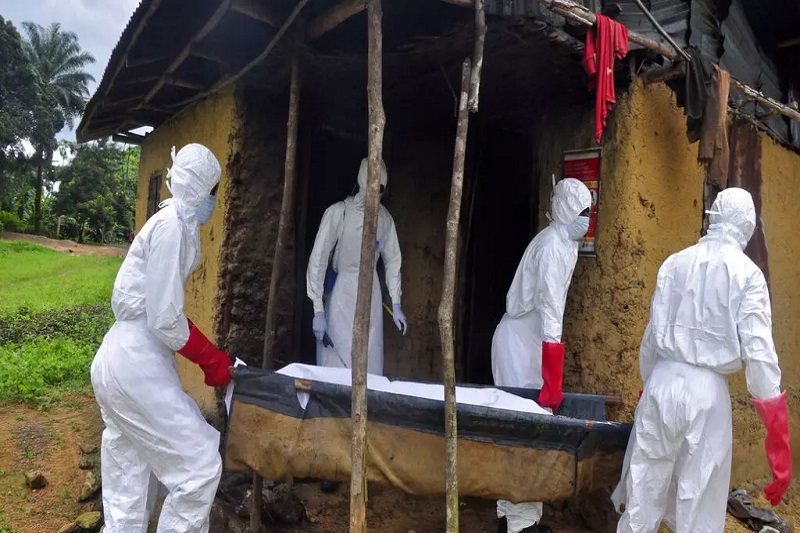Last updated on September 24th, 2022 at 12:20 pm
A few days after reporting an outbreak of a strain of the disease in a central district, the Ugandan authorities in charge of public health have verified the deaths of three further Ebola patients in the country. In a statement released on Friday, the Ministry of Health said that the number of confirmed and suspected deaths linked to the outbreak stayed at 11.
In addition, it was said that the total number of confirmed cases had reached 11 after four further infections had been confirmed in the preceding twenty-four hours. Nineteen more people are thought to have Ebola and are getting care at a hospital, according to the government.
On Tuesday, the authorities in the region of Mubende announced the death of a 24-year-old male and declared the presence of an outbreak. They ascribed the disease to the Sudan strain of Ebola. Mubende is around 130 km (81 miles) from Uganda’s capital, Kampala.
Ebola is a viral hemorrhagic fever that is frequently lethal. According to the World Health Organization, the mortality rate associated with this disease is notoriously high and can reach as high as 90 percent in certain epidemics (WHO). Transmission between humans takes place through the body’s fluids, and the most common symptoms include fever, vomiting, bleeding, and diarrhea.
Related Posts
It can be challenging to put a stop to an outbreak, particularly in metropolitan settings. People who are sick do not become contagious until they begin to exhibit symptoms, which can take anywhere from two to 21 days after the incubation period has passed.
The World Health Organization (WHO) says that the Ebola Sudan strain is less contagious and has a lower death rate in previous outbreaks than the Ebola Zaire strain, which caused the epidemic in the neighboring Democratic Republic of the Congo in 2018-2020 that killed nearly 2,300 people.
There is not a licensed treatment available to prevent or treat Ebola at this time; however, a variety of experimental drugs are currently being developed, and thousands of people in the DRC and some neighboring countries have been vaccinated against the disease. More than 11,300 people died as a direct result of the biggest outbreak to hit West Africa between 2013 and 2016.

